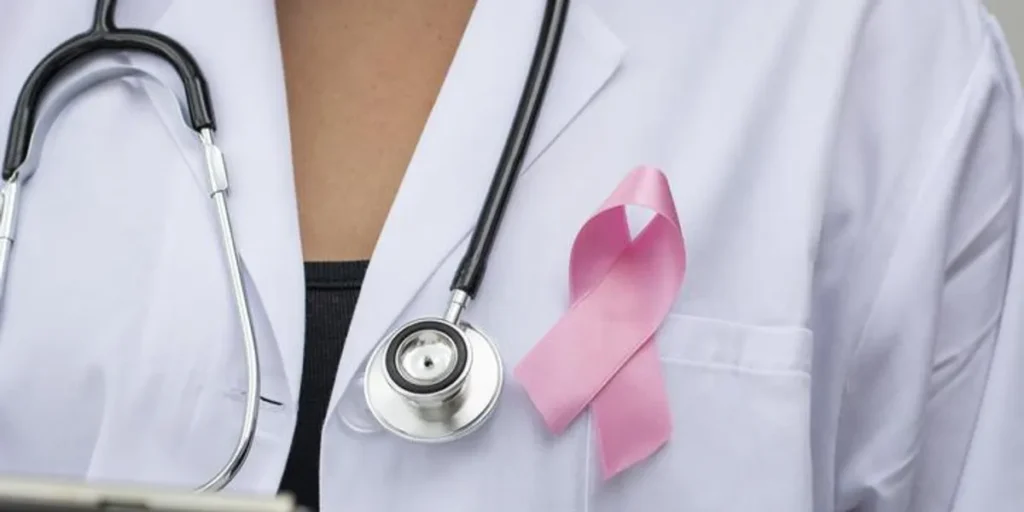Breast cancer is one of the most common types of cancer affecting women worldwide. It is a life-changing diagnosis that can cause immense physical and emotional distress. Finding a breast cancer specialist is crucial for anyone diagnosed with the condition, as this professional will guide patients through their treatment journey. In this article, we’ll explore the role of a breast cancer specialist, the qualities to look for, and how they help patients receive the best care available.
What is a Breast Cancer Specialist?
A breast cancer specialist is a medical professional who focuses on the diagnosis, treatment, and management of breast cancer. This specialist could be an oncologist, surgeon, radiologist, or pathologist, with expertise in the specific needs of breast cancer patients. The specialist’s role is not only to treat but also to provide holistic care that addresses the emotional, psychological, and social aspects of the diagnosis.
Types of Breast Cancer Specialists
There are several types of specialists involved in the treatment of breast cancer, and each plays a critical role in the patient’s care plan:
-
Medical Oncologist: Specializes in the treatment of cancer using chemotherapy, immunotherapy, or other systemic treatments.
-
Surgical Oncologist: Focuses on the surgical removal of tumors or affected breast tissue.
-
Radiation Oncologist: Administers radiation therapy to target cancer cells.
-
Pathologist: Examines breast tissue samples under a microscope to determine the cancer’s characteristics.
-
Breast Care Nurse: Provides support throughout the treatment process, offering information and emotional care.
-
Genetic Counselor: Helps assess whether a patient’s family history and genetic background may increase their risk for breast cancer.
Why is a Specialist Important?
Breast cancer is a complex disease, and treatment requires a multi-faceted approach. A breast cancer specialist is essential for several reasons:
-
Expert Diagnosis: The right specialist will accurately diagnose the type and stage of cancer through advanced diagnostic tests such as mammograms, ultrasounds, and biopsies. Early diagnosis is crucial to improving the likelihood of a successful treatment outcome.
-
Personalized Treatment Plans: Every case of breast cancer is unique, and treatment plans should be tailored to each patient’s specific needs. A specialist will develop a personalized plan that takes into account the type of cancer, the patient’s health, and other factors like hormone receptor status.
-
Comprehensive Care: Breast cancer treatment doesn’t just involve surgery or chemotherapy. It also includes support for the patient’s mental health and overall well-being. A breast cancer specialist offers holistic care, providing access to support groups, nutritionists, and psychologists to help manage the emotional toll of cancer.
-
Access to Clinical Trials: Specialists are often aware of cutting-edge clinical trials and emerging therapies that could benefit patients, particularly those with aggressive or recurrent forms of breast cancer.
Qualities to Look for in a Breast Cancer Specialist
Choosing the right breast cancer specialist can be challenging, but it is essential to ensure the best treatment outcomes. When selecting a specialist, consider the following qualities:
1. Experience and Expertise
Experience in treating breast cancer is vital. Specialists who regularly treat breast cancer patients are more likely to be familiar with the latest treatments and diagnostic techniques. Board certification in oncology, surgery, or pathology is a strong indicator of expertise.
2. Approachability and Communication
A compassionate and communicative specialist can make a significant difference in your care experience. The breast cancer specialist should take time to listen to your concerns and explain your diagnosis and treatment options in a way that you understand. The ability to make patients feel comfortable discussing their worries or preferences is invaluable.
3. Multidisciplinary Teamwork
Breast cancer care often involves a team of specialists. Your breast cancer specialist should be able to work effectively with other medical professionals, ensuring that you receive coordinated care. The team might include radiologists, surgeons, oncologists, and genetic counselors, each offering their expertise to create a treatment plan tailored specifically to you.
4. Access to Advanced Technologies and Treatments
Medical advancements in breast cancer treatment are constantly evolving. A top-tier breast cancer specialist will have access to state-of-the-art technology, such as genetic testing, targeted therapies, and minimally invasive surgical techniques. These treatments can improve outcomes and reduce side effects.
5. Empathy and Supportive Care
Breast cancer can be an overwhelming diagnosis, and having a specialist who offers emotional and psychological support is vital. The best specialists understand the emotional burden of cancer and can connect patients with support networks or offer counseling to help cope with the disease’s mental and emotional aspects.
How to Find a Qualified Breast Cancer Specialist
Finding a qualified breast cancer specialist can be done through several methods:
1. Referrals from Your Primary Care Physician
Your general doctor can refer you to a trusted breast cancer specialist. Primary care doctors often have strong relationships with specialists and can recommend someone who meets your needs.
2. Word of Mouth
Talking to friends, family, or other breast cancer survivors can help you find a specialist who has a reputation for excellent care. Patient testimonials are invaluable in finding a compassionate and skilled professional.
3. Online Research
Many healthcare providers have online profiles, and you can search for specialists with experience in treating breast cancer in your area. Websites like the American Society of Clinical Oncology (ASCO) offer directories of board-certified oncologists.
4. Breast Cancer Centers of Excellence
Some hospitals and medical centers are designated as Breast Cancer Centers of Excellence, meaning they provide a high standard of care, including access to specialized experts, advanced treatments, and clinical trials.
The Importance of Early Detection and Regular Check-ups
Early detection of breast cancer significantly improves the chances of successful treatment. Regular screening, such as mammograms, ultrasounds, and self-examinations, can help detect cancer in its earliest stages when treatment is most effective. A breast cancer specialist will guide you on the appropriate screening schedule based on your age, medical history, and risk factors.
Conclusion: Getting the Best Care for Breast Cancer
Choosing the right breast cancer specialist is one of the most important decisions you’ll make in your cancer treatment journey. From accurate diagnosis to personalized treatment and emotional support, a qualified specialist ensures that you receive comprehensive, compassionate care.
As you navigate your treatment options, remember to focus on the expertise, communication, and empathy of your chosen specialist. Working with a breast cancer specialist who understands your unique needs will give you the best chance for recovery and a healthier future.


